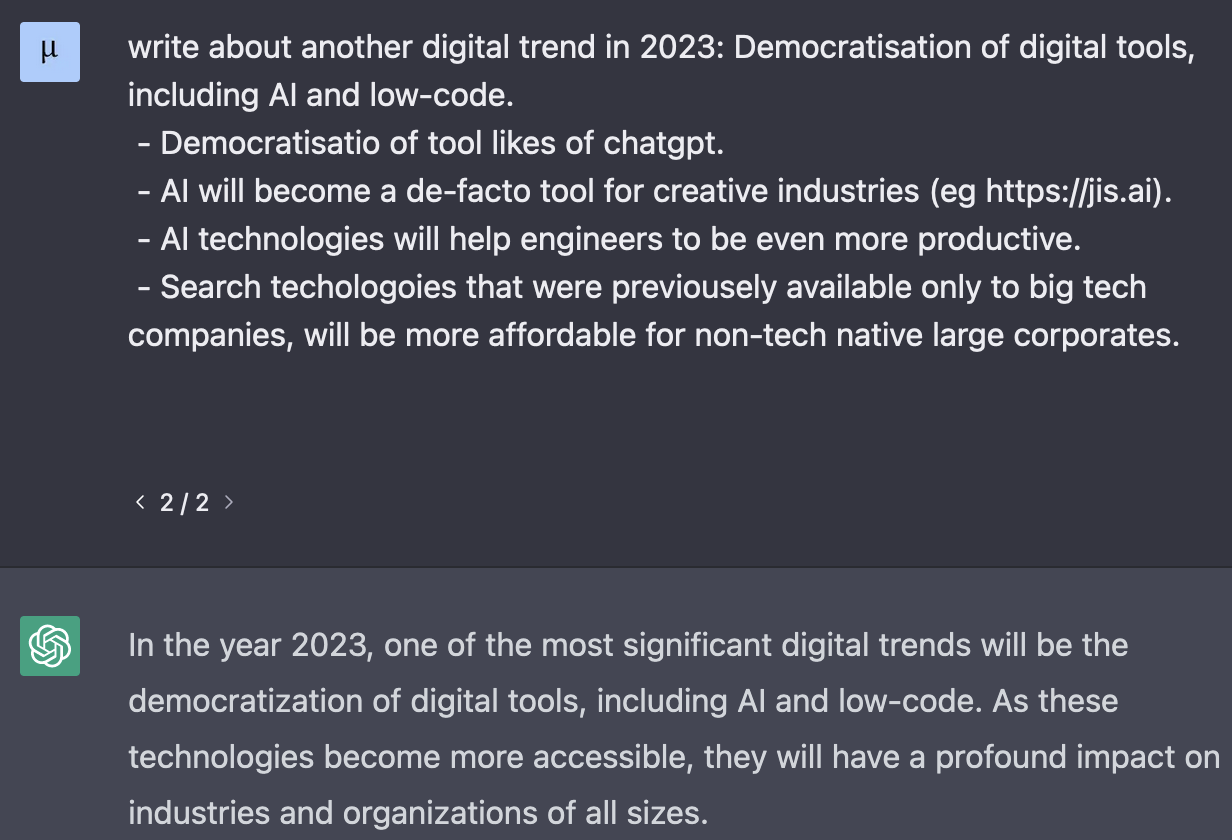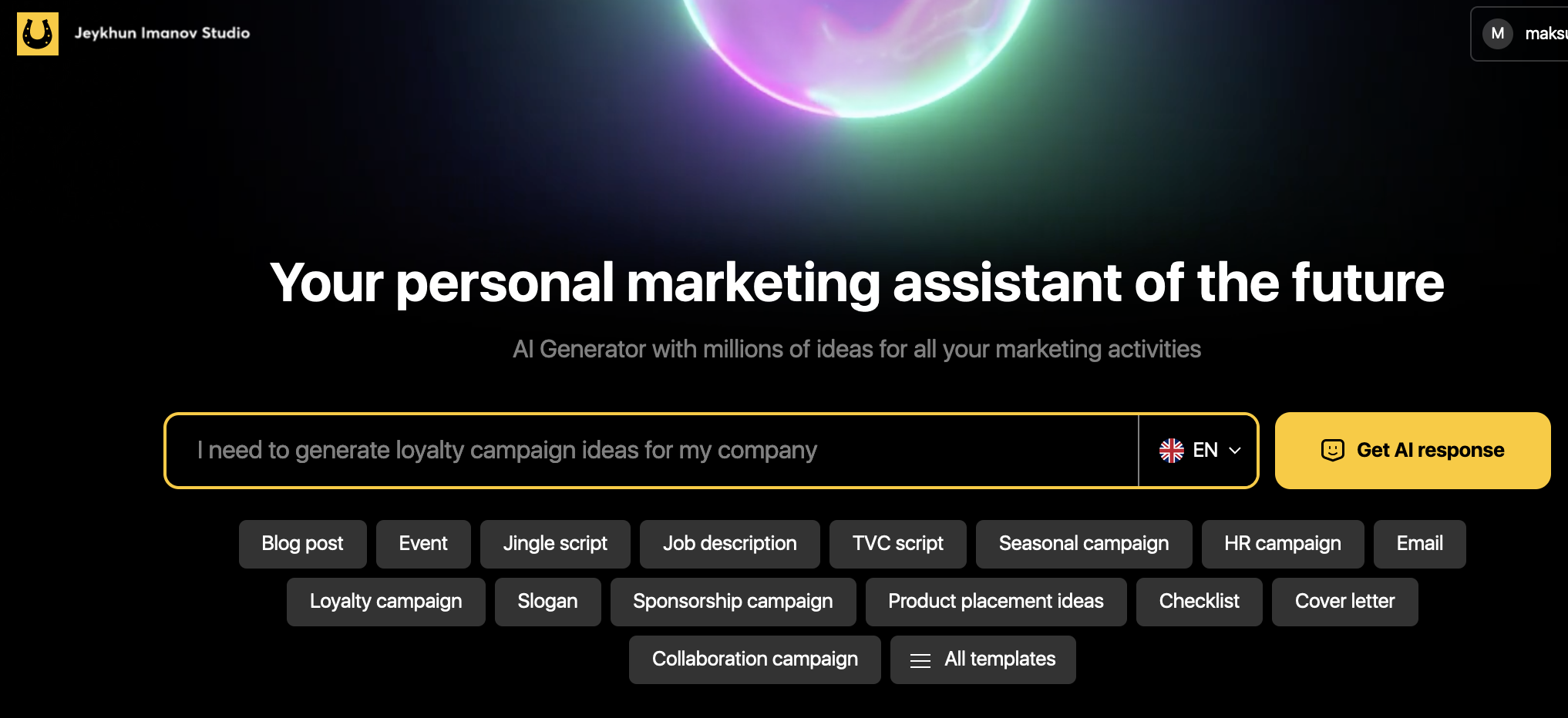I recently posted my personal high level thoughts about top digital trends in 2023. In this article I would like to expand on the first trend: Democratisation of digital tools, including AI and low-code.
This trend is driven by the need to empower people of all skill levels to take advantage of digital technologies and leverage their benefits to improve their lives and businesses. As these technologies become more available, there are increasingly more opportunities to integrate them for high value usecases, not the use the platform by itself. My favourite analogy of this trend is the invention of cooling compressor, which led to expansion of refrigirators, which in turn change the whole industry. Same with the AI tools (like ChatGPT), they are great engine, the compressor, that have potential to expand to expansion of ChatGPT powered “refrigirators” and change industries.
One of the key aspects of the democratization of digital tools is the increasing availability of AI tools, like ChatGPT and DALL-E. These tools are becoming more accessible to non-technical users, enabling them to create sophisticated chatbots, conversational interfaces and tapping into universal knowledgebase, without requiring deep technical knowledge. This democratization of digital tools will drive innovation and enable new use cases across a wide range of industries: customer service, technology, education, creative industries, healthcare, marketing, etc.
I actually used ChatGPT to speed up writing of this article. It was not fully automated process: I had to provide dot-dash list of my ideas and I had to rewrite some of the paragraphs. But it did give me a reasonably good text that I could start with.
 I use chatgpt to speed up writing of my articles
I use chatgpt to speed up writing of my articles
These AI technologies, like ChatGPT, Github co-pilot, will also help engineers to be even more productive. With the increasing complexity of software development, engineers are under pressure to deliver high-quality code in less time. AI tools can help by helping engineers to write more predictable tasks such as testing, documentation, simple funcitons and classes, freeing up engineers to focus on more creative and high-value tasks. Over the last year, I’ve been testing Github co-pilot and recently ChatGPT, and while these techologies speed up my development efforts, there is still a lot of manual inputs and edits required from the engineer.
 jis.ai - application of AI for marketing
jis.ai - application of AI for marketing
Another area where AI is expected to have a significant impact is in the creative industries. AI technologies, like DALL-E and ChatGPT, will become a de-facto tool for creatives, allowing them to generate new ideas, designs, and content. This will help to automate repetitive tasks and free up creative professionals to focus on more complex and high-value work. One example that I recently played with is JIS.AI, application of AI for marketing that automates marketing communication, creates campaigns and marketing materials.
Search technologies that were previously available only to big tech companies will become more affordable for non-tech native large corporates. This will enable these organizations to leverage the power of advanced search technologies to improve productivity, gain insights, and enhance decision-making.
Another aspect of tech democratisation trend is the increasing use of low-code and no-code platforms. These are visual development environments that enable non-technical users to create software applications without having to write code. Low-code platforms will make it easier for businesses to build custom applications tailored to their specific needs, enabling them to be more agile and responsive to changing market conditions. No-code platforms build indutitive website builder interfaces that leverage drag and drop building blocks. Low-code platforms automate a lot of common building blocks but they do require some knowledge of coding. The use cases for low-code/no-code include e-commerce, crm, marketplaces, simple scheduling, etc. In the future I am planning to write separately about this trend.
In conclusion, there will be a lot of integration opporutnities of democratised AI tools. Small, medium and big companies can leverage these platforms for rapid value creation. This does need to be driven by carefully created use cases and not for the sake of using another shiny AI tool.
This article reflects my personal views and opinions only, which may be different from the companies and employers that I am associated with.
